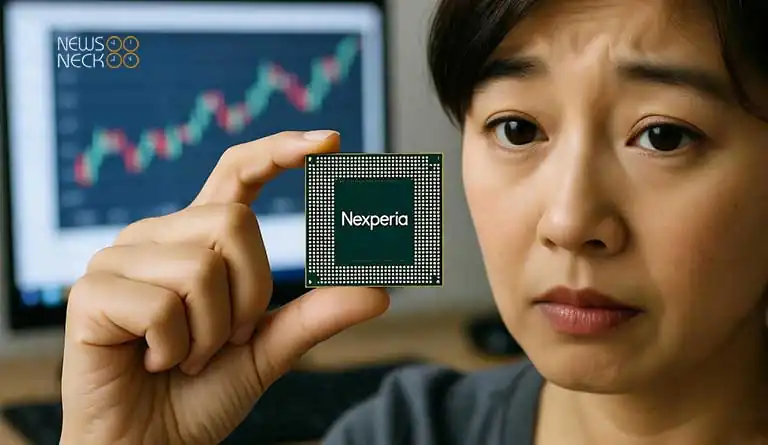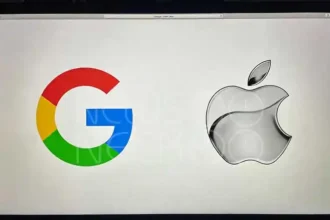Nexperia Chip Crisis: Auto Industry Faces Global Fallout
A growing storm in the semiconductor world has left the global car industry on shaky ground. At the center of this turmoil is Nexperia, a Netherlands-based chipmaker whose tiny components power some of the biggest car brands on the planet. What started as a business dispute has now turned into a geopolitical standoff pulling in the United States, China, and the European Union as they scramble to prevent a full-blown supply chain meltdown.
The crisis began in October, when the Dutch government seized control of Nexperia, citing national security concerns. The company, which is owned by the Chinese electronics firm Wingtech, was accused of potentially transferring sensitive technology to China. In retaliation, Beijing blocked exports of Nexperia’s chips made in its factories the same chips that global carmakers depend on to keep their production lines running.
Now, with cars piling up in factories and suppliers warning of part shortages, leaders from the world’s biggest economies are rushing to contain the damage.
The World’s Car Makers Are Watching Closely
For companies like Volkswagen, Mercedes-Benz, and Nissan, Nexperia’s chips are not luxury add-ons they’re essential. The small, inexpensive semiconductors made by the Dutch company are used in almost every electrical function of a modern car.
They connect batteries to motors, control headlights and brake sensors, and even power airbags and electric windows. Without them, even the most advanced vehicles simply cannot be built.
According to industry data, about 70% of Nexperia’s chips made in Europe are sent to China for assembly and testing, and then shipped back to customers worldwide. That delicate process once a smooth global partnership has now become a diplomatic minefield.
Automakers have warned that if the export block continues for much longer, production lines could grind to a halt within weeks. While some companies maintain short-term stockpiles, switching to alternative suppliers is nearly impossible overnight.
You Might Like it: Jensen Huang Breaks the Rules with His China Strategy
How the Dispute Escalated
The situation took a sharp turn in September, when the Dutch government invoked a Cold War-era law to take control of Nexperia’s operations in the Netherlands. Officials said the move was necessary to protect national interests after reports surfaced that Wingtech, Nexperia’s Chinese parent company, was planning to shift key intellectual property to another China-based entity.
The Dutch court even suspended Zhang Xuezhen, Wingtech’s founder and Nexperia’s CEO, citing “management concerns.”
Beijing responded swiftly, calling the seizure an act of “economic coercion,” and banned the export of several Nexperia-made components from Chinese factories. The tit-for-tat action deepened fears that a new technology cold war could disrupt global manufacturing.
As tensions grew, Nexperia informed its clients including major car manufacturers that it could no longer guarantee timely delivery of chips. Panic spread quickly across the auto industry, which is still recovering from the semiconductor shortages that paralyzed production during the COVID-19 pandemic.
You May Read it: Nvidia Hits $5 Trillion: Breaking Down the AI Rally
A Fragile Path to Resolution
In a possible sign of progress, reports surfaced on Friday that the U.S. government was working on a framework deal to allow Nexperia’s Chinese operations to resume exports. The news came after discussions between President Donald Trump and Chinese President Xi Jinping, who were both attending the Asia-Pacific summit in South Korea.
The following day, China’s Ministry of Commerce announced it would grant exemptions for certain Nexperia chips. “The ministry stated that it will carefully assess the company’s situation and grant export exemptions to those that qualify.”
If confirmed, these exemptions could provide temporary relief to carmakers and stabilize production lines at least for now. However, the broader dispute over ownership, technology transfer, and national security is far from settled.
The Bigger Picture: Technology and Power
The Nexperia crisis is more than just a corporate dispute; it’s a reflection of the growing global competition for control over semiconductor technology.
The U.S. has already blacklisted Wingtech, accusing it of helping China acquire sensitive chipmaking capabilities. Washington’s recent tightening of export control rules has further restricted Chinese access to advanced technology, intensifying Beijing’s frustration.
Meanwhile, the European Union is caught in the middle trying to protect its industries while maintaining a delicate trade balance with both superpowers.
Experts say this clash shows how vulnerable the world’s technology supply chains have become. Even a small disruption in one company can ripple across industries halting car production, slowing electronics manufacturing, and affecting global trade.
What Happens Next?
As negotiations continue behind closed doors, automakers are holding their breath. A full resolution could take months, and every week of uncertainty means mounting costs for an industry already under pressure from inflation and changing demand.
For now, Nexperia’s fate and the stability of global auto production hangs on the fragile cooperation of three economic giants: the U.S. China and the EU.
If this crisis has proven anything, it’s that in a world driven by technology, even the smallest chip can spark the biggest conflict.
Author: Yasir Khan
Date: 02 Nov, 2025
For More Updates, Visit Newsneck













